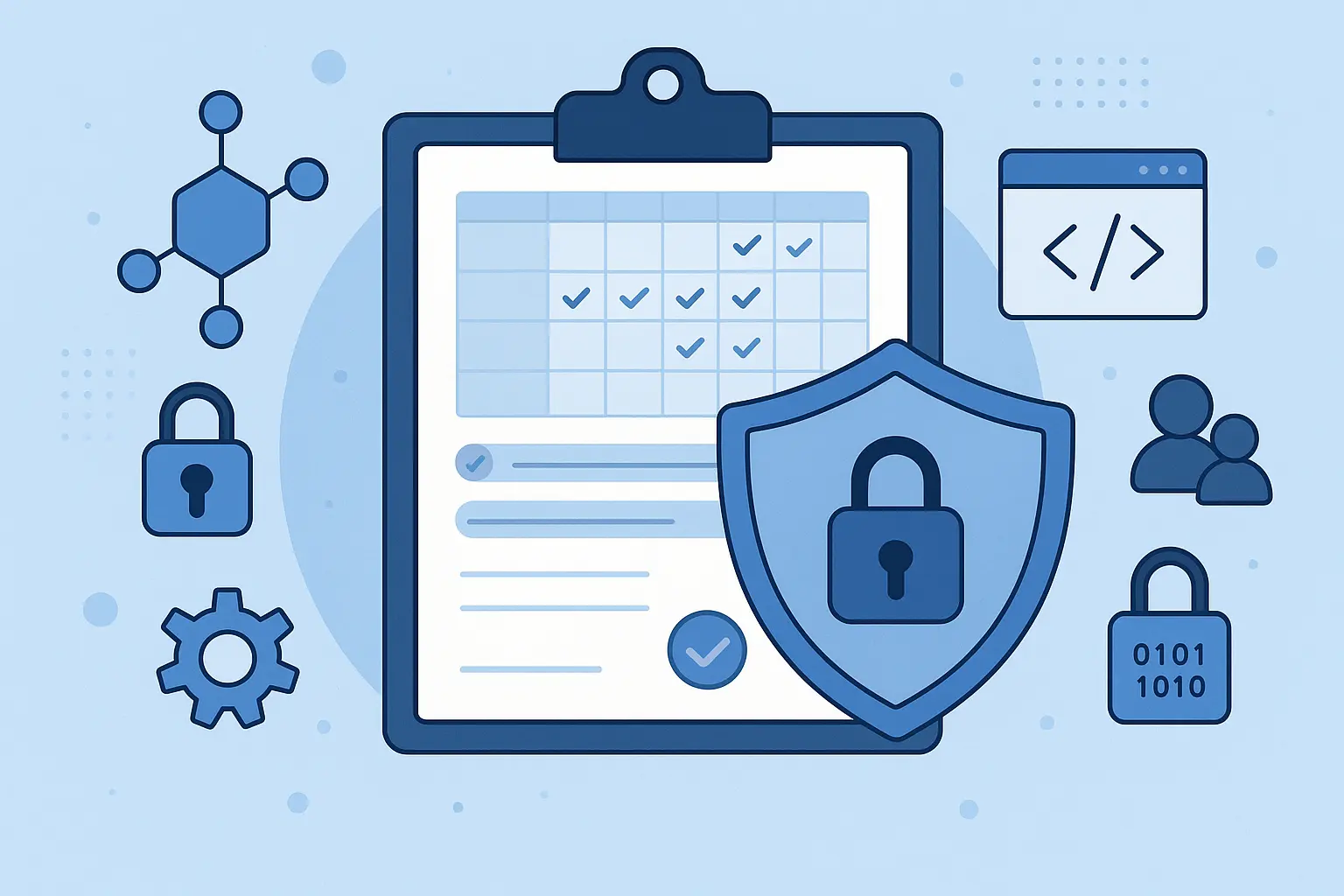IN THIS POST
Quantum computing—a technology that harnesses the unique laws of quantum mechanics to solve problems beyond the reach of traditional computers—is rapidly evolving. Public investments in quantum technology grew over 50% in 2022, and this innovation saw a whoping USD $42 billion total in funding. With the amount of funding continuing to increase, quantum technology will be soon be unstoppable.
While it promises upgrades in various fields, from materials science to drug discovery, it also presents a looming threat to businesses: the obsolescence of many current cybersecurity measures. How will this happen and what does it mean for businesses and organizations? Read on.
Advancements in Quantum Computing
Experts predict significant advancements in quantum computing by 2030, which will likely be around the time when the technology will threaten the security of current encryption methods. Here are some of the expected advancements:
Increased Qubit Count
Qubits are the quantum equivalent of bits—the basic unit of information in classical computers. Today’s quantum computers operate with tens or hundreds of qubits. By 2030, experts predict an increase to potentially thousands of qubits, significantly boosting processing power.
Improved Error Correction
Quantum systems are inherently fragile and prone to errors. Advancements in error correction techniques are crucial for reliable operation. Over the next few years, major progress in error correction could enable more stable and accurate computations.
Algorithm Development
Quantum computers work differently from our everyday computers. They use special sets of instructions, called quantum algorithms, that are designed to uncover the unique quirks of quantum mechanics. These quirks allow quantum computers to tackle certain problems much faster than even the most powerful traditional computers. This could lead to breakthroughs in fields like materials science, drug discovery, and financial modeling.
Quantum Supremacy
This refers to the point where quantum computers can outperform even the most powerful classical computers for specific tasks. While there’s no guarantee, some experts believe industries might witness this milestone in the following years for certain problem types. However, achieving general-purpose quantum supremacy, where quantum computers outperform classical computers for all tasks, is likely further down the road.
While this innovation may boost many industries, it could bring quantum computers to a point where they can crack the current encryption algorithms that safeguard your data today. This necessitates organizations to develop a blueprint for quantum resilience to get ahead of these advancements.
The ‘Harvest Now, Decrypt Later’ Scheme
The current encryption algorithms that are commonly used to boost internet security, like R.S.A. (Rivest–Shamir–Adleman) and E.C.C. (Elliptic Curve Cryptography), rely on complex algorithms that are extremely difficult for classical computers to solve within a reasonable timeframe.
However, cybersecurity threats are still on the rise, with data breaches seeing a 20% spike in 2022 to 2023. Unfortunately, with their ability to manipulate qubits in the future, quantum computers can make these cyberattacks skyrocket by breaking complex codes in a fraction of the time. This susceptibility opens the door to threats like the ‘harvest now, decrypt later’ attack.
This attack scheme presents a significant threat with the emergence of quantum computing.
How Does This Attack Work?
Imagine a vast archive of encrypted data—financial records, intellectual property, personal information—stored on servers or transmitted across networks. This information is currently protected by using standard encryption algorithms. However, with the projected advancements in quantum computing by 2030, these problems will become solvable.
Malicious actors could exploit this future vulnerability. They can intercept and store the encrypted data today, even if they can’t decipher it with current technology. This ‘harvesting’ phase involves collecting as much encrypted data as possible, anticipating a future where they can unlock it.
Once quantum computing reaches a sufficient level of maturity, the harvested data becomes susceptible to decryption. Cybercriminals can decrypt the previously collected data and gain access to sensitive information.
What is its Potential Impact?
The consequences of a successful ‘harvest now, decrypt later’ attack could be this devastating:
- Corporate Espionage: Businesses could lose valuable trade secrets or intellectual property to cybercriminals who exploit stolen data.
- Financial Espionage: Hackers could steal sensitive financial information from banks, credit card companies, or investment firms.
- Mass Identity Theft: Personal information harvested from government databases or healthcare providers could be used for large-scale identity theft. This is alarming because, even today when quantum computing hasn’t yet reached its potential, data breaches and identity theft cases are seeing an all-time high. In 2021, 42 million consumers fell victim to identity theft in the U.S. alone, the damage amounting to USD$ 52 billion. Imagine the damage the ‘harvest now, decrypt later’ can do.
- National Security Threats: Access to classified information could pose a risk to national security if intelligence agencies or military networks are compromised.
The possibility of these attacks highlights the urgency of adopting post-quantum cryptography (P.Q.C.) solutions.
Post-Quantum Cryptography
Thankfully, the cybersecurity community isn’t sitting idly by. Recognizing the threat posed by quantum computing, the National Institute of Standards and Technology (N.I.S.T.) made years of effort to choose new encryption algorithms that are resistant to quantum threats. After a rigorous selection process, N.I.S.T. has chosen the four winning post-quantum cryptography (PQC) algorithms for standardization.
ML-KEM (Module Lattice-based Key Encryption Module)
ML-KEM, formerly CRYSTALS-kyber, uses lattice-based cryptography and is often used for smartphones, internet-of-things (IoT) devices, and other gadgets that might have less processing power. This works especially well because it encrypts and decrypts information quickly without needing a lot of resources from the device itself.
CRYSTALS-Dilithium
If top-notch security is your biggest concern, Dilithium is a strong contender. Also using lattice-based cryptography, it offers an utterly high level of protection for your data. However, there’s a trade-off—it requires more processing power to work compared to ML-KEM. This means it might not be the best fit for devices with limited resources.
FALCON
This lattice-based cryptography option is particularly useful for situations where you need to verify the authenticity of something digital, like a document or software program.
SPHINCS+
Unlike the others, SPHINCS+ is a stateless hash-based signature scheme. It’s one big advantage is that it uses this different type of cryptography than the other three algorithms so it offers a good backup.
Understanding each of the winning PQC. Algorithms are crucial for businesses when making the transition to post-quantum cryptography.
Getting Ready For The Quantum Age
The transition to post-quantum cryptography (PQC) requires businesses to carefully plan and execute necessary changes to minimize disruption and ensure a smooth migration. A good place to start is by conducting a security audit to assess current encryption practices and identify critical data and systems that need the strongest defenses against future quantum attacks. Understanding the newly standardized PQC encryption algorithms, figuring out their strengths and weaknesses, and considering pilot programs to test which options best suit your specific needs and resources will help build a solid plan.
Having a team with the right expertise, including cybersecurity professionals familiar with both traditional and post-quantum cryptography, is also imperative. Teams should develop a phased migration plan prioritizing the most critical systems and data first. Thoroughly test the new PQC implementations to ensure they function properly and integrate seamlessly with existing systems. Once the new plan is in action, employees must be trained on the importance of the transition and how to use the new post-quantum cryptography-based security measures effectively.
Businesses that start preparing now can proactively address the quantum threat and safeguard their sensitive information in the coming era of quantum computing.
In Closing
Exciting breakthroughs in quantum computing are on the horizon, promising to revolutionize fields from medicine to materials science. But there’s a flip side: these powerful machines will crack the encryption codes that protect our data today. This means the way everyone safeguards sensitive information needs an upgrade.
By creating and following a step-by-step plan and working with cybersecurity professionals, you can make a smooth transition to PQC. This might sound challenging, but securing your data for the future is an investment that will pay off. The world of technology is constantly evolving, and by taking proactive steps now, your business can be ready to thrive in the quantum era.

Save your team time and money with Bookafy!
Using online appointment scheduling software, you can automate booking, reminders, syncing to calendars, fetching video meeting URLs, and much more. Try Bookafy free today!
Recommended Articles

Why Transparency and Education Are the New Growth Engines in eCommerce Online Wellness Markets
BOOKAFY BLOG Why Transparency and Education Are the New Growth Engines in eCommerce Online Wellness Markets IN THIS POST The online wellness market is undergoing a significant transformation. Once dominated

9 API Security Best Practices Every Booking Platform Needs
BOOKAFY BLOG 9 API Security Best Practices Every Booking Platform Needs IN THIS POST Your organization is like a finely tuned machine where systems work together in harmony to keep

Why Remote Teams Secretly Appreciate Timesheet Software Like Workstatus
BOOKAFY BLOG Why Remote Teams Secretly Appreciate Timesheet Software Like Workstatus IN THIS POST Remote work has transformed how businesses are operated. Different cities; or even nations, are collaborating on

All About Optimizing Your Booking Page for Search Engines
BOOKAFY BLOG All About Optimizing Your Booking Page for Search Engines IN THIS POST Have a booking page, but not getting as many customers as you expected? That could be

From Side Hustle to Full-Time: How ESL Tutors Scale Their Income with Smart Tools?
BOOKAFY BLOG From Side Hustle to Full-Time: How ESL Tutors Scale Their Income with Smart Tools? IN THIS POST Do you remember working at your typical 9-5 job? You might

The Appointment Revolution: How to Schedule Like a Pro with These Simple Hacks
BOOKAFY BLOG How to Schedule Like a Pro with These Simple Hacks IN THIS POST Time significantly impacts how people evaluate their experiences. When time is wasted, customers often remember

